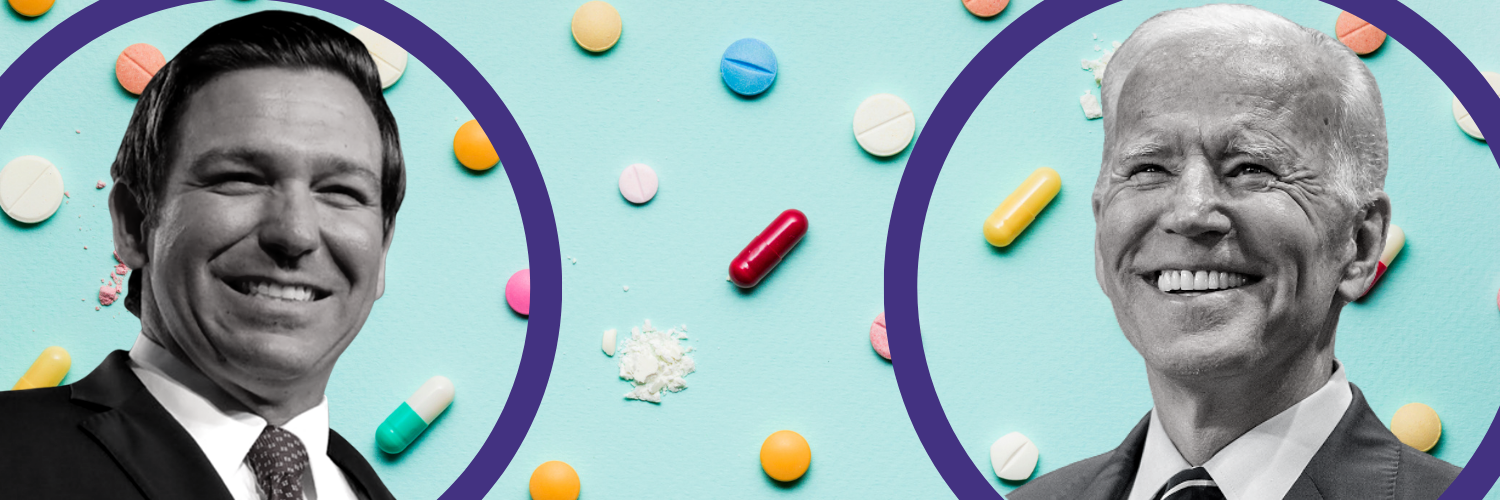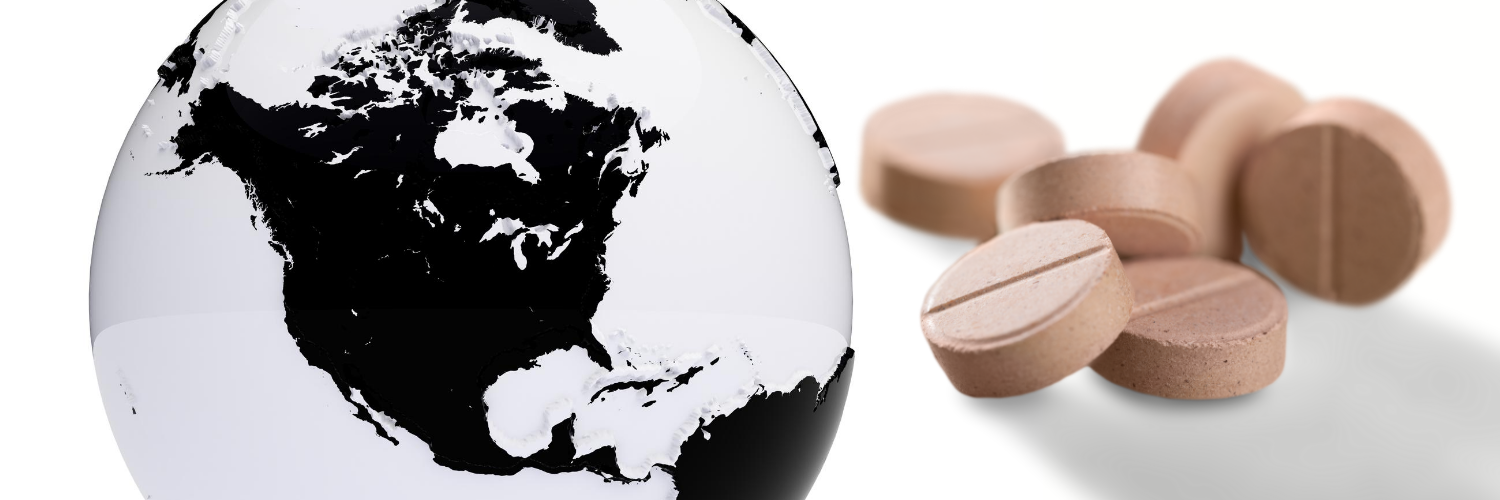Biden's Lukewarm Support of Florida’s Drug Importation Program

As a patient consumer looking for information about more affordable prescription drugs on the Internet and from other countries, you may be interested to know the status of a lawsuit brought by the Pharmaceutical Researchers and Manufacturers of America (PhRMA or “Big Pharma”). First of all, you shouldn’t have to look this hard to afford your medications. Citizens of all other high — and even many middle — income countries have it much easier than you do because drugs in those countries are much cheaper. But here we are, so let’s get into it.
Last year, in accordance with federal law, Section 804 of the Food, Drug and Cosmetic Act, then Health and Human Services Secretary Alex Azar certified that the importation of prescription drugs from Canada will pose “no additional risk to the public’s health and safety” and “result in a significant reduction in the cost of covered drugs to the American consumer.” That certification officially made importation of lower-cost drugs from Canada legal without actually authorizing any new importation.
As I wrote about last month, many states have introduced and six have passed laws to create Canadian wholesale drug importation programs that could operate IF the HHS Secretary issued the certification mentioned above. Last fall, in addition to the certification, a federal rule (“Section 804 rule”) was issued that created the regulations that states would have to meet to actually start importing. The rule came into effect on November 30, 2020. A week before that date, on November 23, PhRMA, along with the Partnership for Safe Medicines (PSM) and the Council for Affordable Health Coverage (CAHC) filed a lawsuit asking the “[c]ourt to hold unlawful, set aside, and permanently enjoin implementation of the Certification and Final Rule.” Essentially Big Pharma sued the government to stop state-led drug importation from Canada that could result in lower profits for drug companies and their shareholders. Who are those other groups? CAHC and PSM? They are industry allied groups (to put it mildly).
After Joe Biden’s victory last November, advocates for lower drug prices in America, particularly those in support of importation, were uncertain if a Biden administration would defend the certification and rule or cave into Big Pharma.
As part of his campaign platform, Joe Biden went on the record in favor of “allowing consumers to buy prescription drugs from other countries.” Of course, politicians say a lot of things and then do something else. Often, there’s a middle ground. Sure enough, the Biden administration recently took an action that appeared simultaneously congruous and at odds with Biden’s campaign position on drug importation: On May 28, the federal government filed a motion to dismiss Big Pharma’s lawsuit that defended the certification made under the Trump administration while casting doubt on the future of state drug importation programs. In summary, Big Pharma’s lawsuit was based on several grounds including:
1) the certification was unlawful because importation will pose safety risks and will not ensure that consumers save money;
2) the Section 804 rule violated the Administrative Procedures Act by not explaining, to Big Pharma’s satisfaction, the agency’s change of heart when other HHS Secretaries were unwilling to issue this certification; and
3) the Section 804 rule may force drug companies to take actions that violate their constitutional and trade secret rights, such as providing drug labeling and testing information to importers.
Those are only some of Big Pharma’s arguments.
The motion to dismiss defends the right of the federal government to issue the certification under Section 804, declaring the safety of drug imports from Canada and the savings that will be accrued, but makes clear that no state programs have actually received the green light. While the Biden administration does counter Big Pharma’s complaints noted above, its main argument is that the lawsuit is premature. Since the plaintiff, Big Pharma, has not been injured from new importation under the Certification, the Biden administration has argued that they have no standing to actually sue. The motion relies on the ripeness doctrine, which “prohibit[s] federal courts from exercising jurisdiction over a case until an actual controversy is presented involving a threat of injury that is real and immediate.” So, since no actual importation is happening, Big Pharma has no standing to cry about it.
Two headlines in the media show the dichotomy at play here.
Kaiser Health News: “Biden Administration Signals It’s in No Rush to Allow Canadian Drug Imports”
Politico: “Biden administration sides with Florida on Canadian drug imports”
As quoted in Kaiser Health News, I said: “While articulating possible hurdles that may prevent state drug importation programs from moving forward, the Biden administration’s motion to dismiss PhRMA’s lawsuit keeps alive opportunities for more Americans to benefit from drug importation.” Key hurdles include a rule issued by the Canadian government, which bars wholesalers from exporting pharmaceuticals without first ensuring such exports will not lead to shortages in Canada. Another hurdle: states may not find it easy to partner with Canadian wholesalers willing to participate in their programs. Yet another is that drug companies will likely restrict supplies to Canadian wholesalers who do in fact participate. These are also the same points that Big Pharma has made against the programs. The government is throwing them back in Big Pharma’s face to explain why programs have not yet begun and that Big Pharma should back off.
In fact, only two states, Florida and New Mexico, have submitted final drug importation program plans… and the FDA has not gotten back to them. Florida, in particular, is rearing to get to it. Its Republican governor, Ron DeSantis stated:
Florida’s Canadian Prescription Drug Importation Program will improve access to essential medications to our most vulnerable citizens and potentially save the state between $80 to $150 million in the first year alone. Today, we are calling on the Biden Administration to act immediately to approve Florida’s plan that will ultimately help drive down costs for taxpayers.”
The Florida Agency for Health Care Administration (AHCA), the state agency responsible for regulating the state drug importation program, filed an amicus brief in support of the Biden administration’s motion to dismiss. Florida’s brief contains similar arguments to the motion to dismiss but goes further in explaining key components of Section 804 and the rule that prove their regulatory worth in making this new proposed channel of drug importation highly secure.
You can bet party politics will be in play on this issue. Governor DeSantis and Florida are coming out swinging to let Florida import now. The strident language used by a spokesperson for Gov. DeSantis in an email to Kaiser Health News underscores the politics:
Gov. DeSantis calls on the Biden administration to step out of the way of innovation and act immediately to approve Florida’s plan that provides safe and effective drugs to drive down prescription costs.”
Unlike DeSantis, the Democratic Governor of New Mexico, Michelle Lujan Grisham, did not issue a press release on the Biden administration’s move.
In terms of Americans currently importing prescription drugs for personal use, the Certification and Section 804 rule specifically stated that the rule does not issue new regulations expressly permitting personal imports. However, the actual law, Section 804, calls on the FDA to permit personal drug importation. So, if anything, at this time, the Biden administration’s decision to defend the Certification and the Section 804 rule is helpful for patients.
The battle to lower drug prices continues…




